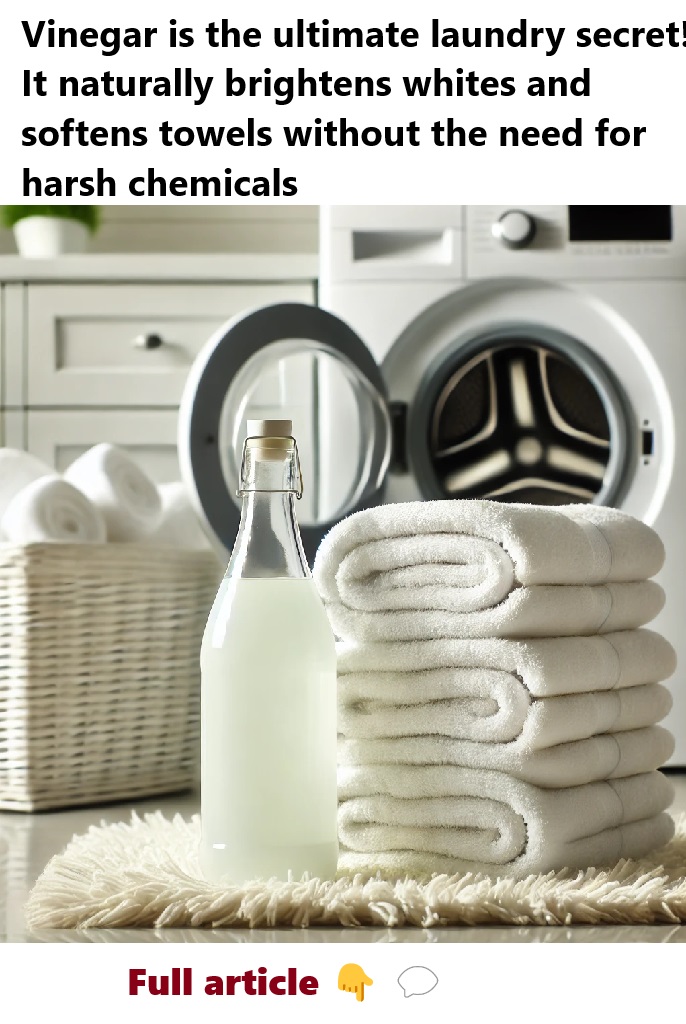- Sort your laundry: Separate towels, whites, and colored items as you normally would.
- Start the washing cycle: Add your usual detergent and begin washing your laundry.
- Add vinegar at the rinse cycle: Pour about half a cup of distilled white vinegar during the rinse cycle. For extra-large loads or heavily soiled towels, increase the amount to a full cup.
- Complete the washing process: Let the machine complete its rinse and spin cycles.
- Dry as usual: Once your towels are washed, dry them as usual. You’ll notice they come out softer and fluffier.
Choosing the Best Vinegar for Laundry
Plain distilled white vinegar is the best choice for laundry, as it’s clear and will not stain fabrics. Its light acidity ensures that it removes residues and odors without affecting the texture or color of your clothing. Some people use apple cider vinegar, but it’s best avoided for lighter fabrics since its darker color can potentially leave marks.
Additional Tips for Maximizing Vinegar’s Effectiveness
- Boost odor removal: For extra freshness, combine vinegar with a small amount of baking soda when dealing with musty-smelling towels or clothes.
- Use vinegar in the rinse cycle: This step ensures that the vinegar neutralizes any remaining detergent and keeps fabrics fresh. Avoid adding it during the wash cycle, as it can neutralize the detergent.
- Skip commercial softeners: When using vinegar, you won’t need fabric softener since vinegar naturally softens the fabric.
Common Mistakes to Avoid
- Using too much vinegar: Overusing vinegar can weaken the fabric fibers or affect your washing machine’s parts over time. Stick to the recommended amounts.
- Mixing with bleach: Never combine vinegar and bleach, as this produces harmful chlorine gas.
- Check fabric labels: Vinegar may damage delicate fabrics like silk or wool, so always check the care instructions before use.
Benefits of Using Vinegar for Laundry
Incorporating vinegar into your laundry routine is not only cost-effective but also environmentally friendly. It reduces the need for synthetic laundry softeners and whiteners, and a gallon of vinegar is generally much cheaper than commercial products. Plus, vinegar is biodegradable, making it a more sustainable choice for household cleaning.
Frequently Asked Questions
- Will my laundry smell like vinegar? No, the vinegar smell completely disappears once the clothes are dry.
- Is vinegar safe for my washing machine? Yes, vinegar can even help clean out your washing machine by dissolving mineral buildup.
- Can vinegar be used on all fabrics? While it’s safe for most fabrics, it’s best to avoid using it on delicate materials like silk or wool, as the acidity may weaken the fibers.
Pages: 1 2
